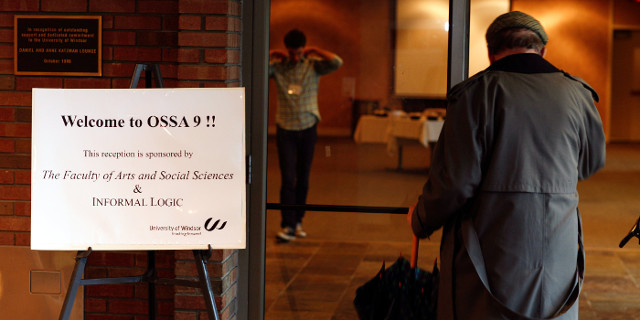
Location
University of Windsor
Document Type
Restricted Access
Keywords
epistemology of disagreement, pragmatism, social epistemology
Start Date
18-5-2011 9:00 AM
End Date
21-5-2011 5:00 PM
Abstract
In this paper, I take up the conciliatory-steadfast debate occurring within social epistemology in regards to the phenomenon of peer disagreement. I will argue, because the conciliatory perspective al-lows us to understand argumentation pragmatically—as a method of problem-solving within a community rather than as a method for obtaining the truth—that in most cases, we should not simply agree to disagree.
Creative Commons License

This work is licensed under a Creative Commons Attribution 4.0 International License.
Included in
Should we agree to disagree? Pragmatism and peer disagreement
University of Windsor
In this paper, I take up the conciliatory-steadfast debate occurring within social epistemology in regards to the phenomenon of peer disagreement. I will argue, because the conciliatory perspective al-lows us to understand argumentation pragmatically—as a method of problem-solving within a community rather than as a method for obtaining the truth—that in most cases, we should not simply agree to disagree.
